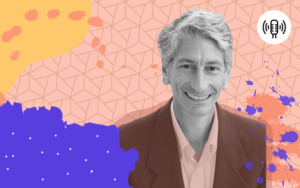
Under the Microscope with Dr. Jeffrey Krichmar
For years scientists have struggled how to find a way to model and study the brain, something that we do very much rely on but
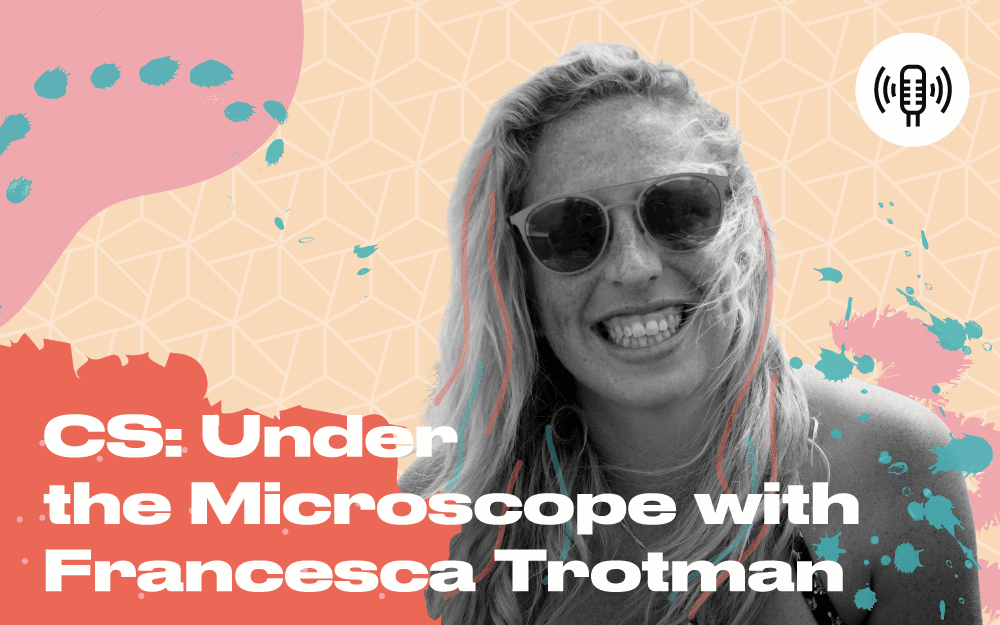
Marine conservation is one of the hottest topics on the planet. From plastic pollution to mass coral bleaching events, scientists all over the world are doing their bit to try and combat this global crisis. Francesca Trotman and her team at Love the Oceans are trying to do just this in Guinjata Bay, Sout East Mozambique. Their aim is to set up a marine protected area (MPA) off the coast that will protect the incredible biodiversity found on the 24 reef system and also alleviate poverty in the local community.
Trotman established Love the Oceans during her marine biology master’s course at Southampton University (UK) after traveling to Mozambique on a photography internship. Here, she witnessed her first shark killing and finning and mortified by the event was driven to try and save the species of the area. Tom interviews Trotman 5 years into her 15-year plan of establishing an MPA in the area, where their approach is not only focused on the environment and ensuring direct conservation but also one that is deeply embedded within the community. This is absolutely vital for modern-day conservation projects so that they can be left self-sustaining with the local community and provide jobs, tourism, education, and money to poverty-stricken regions. They cover why volunteers are the most effective method of data collection, why and how the community projects are so important, and how things might have been done differently in retrospect.
If you would like to find out more information about Love the Oceans or if you are even interested in volunteering yourself you can head over to their website lovetheoceans.org, Facebook, Twitter (@lovetheoceans) or Instagram!!
You can listen to Under the Microscope by using the player above, searching for “The Conduct Science Podcast” on any place you listen to your podcasts, using any of the links below or you can download this episode HERE! You can also read the transcription down below.
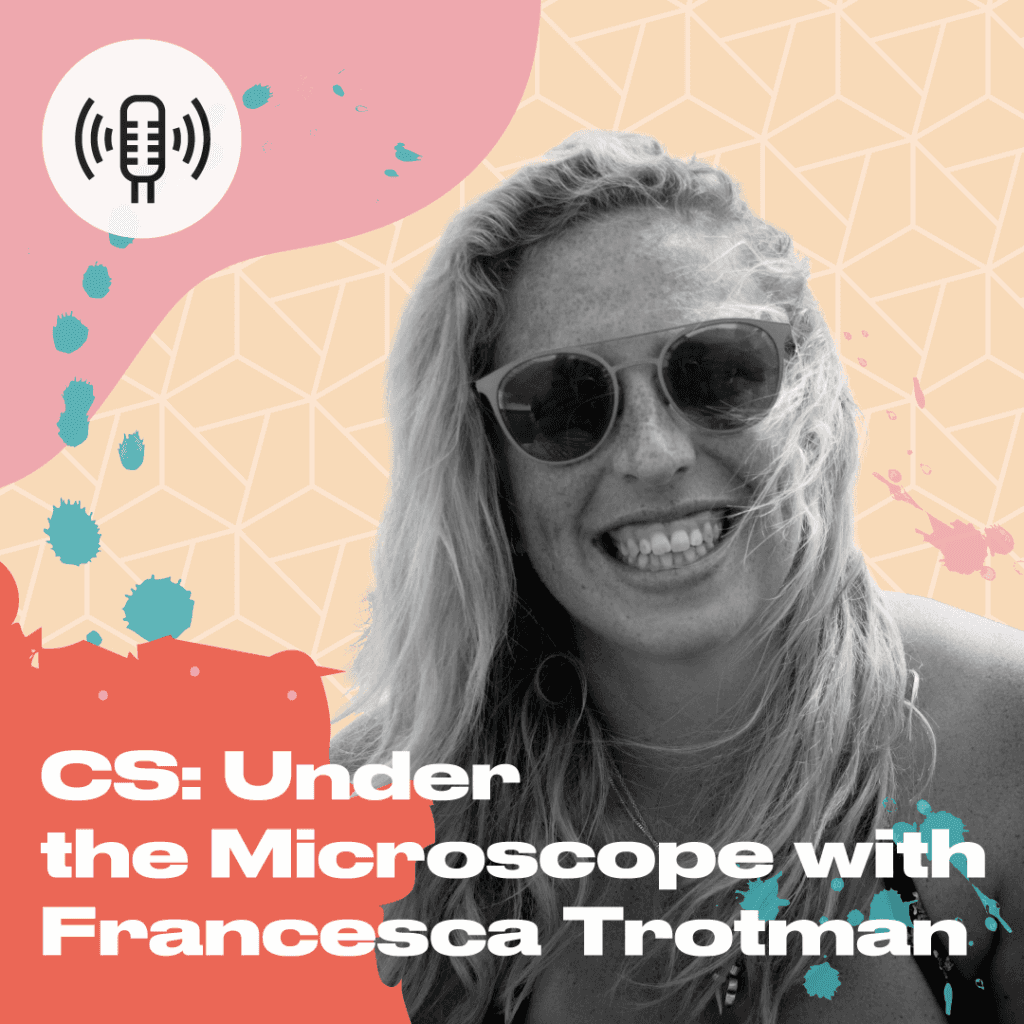
Today’s Guest:
Tom talks to Francesca Trotman, founder and managing director of Love the Oceans, a British non-profit organization collecting data and conducting research in Mozambique. The aim of Love the Oceans is to set up a self-sustaining, a local community-led marine protected area that both alleviate poverty from the local region and employs effective conservation of its marine world.
Check out lovetheoceans.org for more information!
In today’s episode, Tom is Under the Microscope with a marine biologist and founder of Love the Oceans (LTO), a British non-profit conducting research in Mozambique. In the interview they dive into the process of starting up your own non-profit, how and why LTO came to be what it is, the research being conducted and the fundamental reasoning behind the huge amounts of effort put into the local community! You can find out more information by visiting lovetheoceans.org! Music by: Joakim Karud – https://soundcloud.com/joakimkarud.
Feel free to share your thoughts on our Twitter here: @Conduct_Science
Use #ConductScience on twitter to:
Learn about our products:
Tom: Hello Ladies and gentlemen and welcome back to another episode of Under The Microscope. Joining me today is Francesca Trotman, the founder and managing director of Love the Ocean’s a British nonprofit organization conducting research in Mozambique. Today we are just going to be talking about how she set this up because rather impressively she did this while still at university on her masters course, the type of research they are conducting, the way they formed their methodologies and chose to use volunteer science and their many interactions with the local community and why that is so fundamental in conservation and a lot of people don’t understand that. I think so what an incredibly interesting conversation we had and I cannot wait for you guys to hear it. This organization is absolutely fantastic. I went and spent five weeks with them as a volunteer in 2017 and it was one of the best times of my life, if not the best. I mean not only was it a great experience in seeing wildlife, but more than this. It also provided me with great work experience. If you want to check them out, you can head to lovetheoceans.org I will place the link to that in the description of this episode. If you are on our site, you also get all the links to their social media and stuff like that. But at the end of the podcast she does tell you where to find them. So I do not want to delay this any further. Take it away.
Tom: Hello and welcome. Ladies and gentlemen, today I’m under the microscope with Francesca Trotman, the founder and managing director of Love The Oceans a British nonprofit conducting research in Mozambique. Once again, thank you for joining me today, Fran.
Francesca: No worries.
Tom: To start, why don’t you just tell us a bit about your background and your interested areas of study and kind of how you ended up where you are.
Francesca: So I, as you said, I run Love the Oceans. So we are a marine conservation organization and we do lots of different areas of research and I’m a marine biologist by training, so I, well I’ll go right back to the beginning. So when I was 8, my mom took me to the lungs and aquarium. Going way back now. And uh, I was pressed up against the shark tank, like a weird little kid, super obsessed with the sharks. And the dude that was in the tank cleaning the shark tank picked up one of the teeth that had been shared by the sharks. And I kept it for like five years. It was my indicator that I was quite obsessed with sharks. Um, and then I had the opportunities to learn to dive, which I took when I was 13 and I didn’t really look back. I went to uni and I just looked up universities for marine biology. Went did marine bio there, actually did the integrated masters course. And while I was at uni I decided that, um, I wanted to make myself as employable as possible by the time I graduated. So I, um, in the end of my first year I did my dive master qualification. Um, so I could do diving. And then at the end of my second year, I took a photography internship, um, because photography is my second job and that was actually in Mozambique. So while I was on that internship, I saw my first shark killing, um, i.e. Humans killing sharks, not the other way around. And, um, that was really upsetting for me because I’d obviously been obsessed with sharks for a really long time and, uh, I didn’t want sharks to be killed. So I then, uh, decided, well, first of all, I was super angry at the fishermen that had done that killing. And then I realized that it wasn’t the fishermen that I should be angry at. It was the industry as a whole because the reason that they were killing those sharks was for the shark fin trade. So, um, then I went back to the university, uh, and found some research assistants, returned the following year and spent four months with the shark fishermen there and basically researched the industry as a whole and then set up, um, my NGO to continue to initially continued our research. But we’ve actually expanded a lot, and now our mission is to establish a Marine Protected Area (MPA) here, which will, um, here being Mozambique and the, that will protect the sharks, but also protects a lot of other habitats and species that are really important to this region. Um, so yeah, that’s kind of how I got to where I am now. So my area of interest really is, um, Elasmobranch fisheries, um, Elasmobranch’s being sharks, skates, rays. Um, but that said, I do get super obsessed with each one of our research areas. Um, so yeah, I do kind of expand. Um, but my knowledge base mainly as in fisheries.
Tom: Yeah. I guess it’s something I kind of glossed over in the introduction is that you’re actually in Mozambique right now aren’t you?
Tom: Um, yeah yea, it’s not too bad!
Tom: Yeah, it’s a winter there though, right? At the minute?
Tom: Yeah. I mean winter is still very much warmer than British summer.
Tom: Yeah. It’s a, it’s a lot better than here, I can tell you that. Um, so you kind of set up this nonprofit and when you say Mozambique, but it is actually kind of so remote. It’s in the absolute middle of nowhere. I say this because it took me 52 hours constant travel to get from my house to where you guys are in Guinjata Bay.
Francesca: It’s not the easiest place to get to, but it is beautiful. Partly I think because it’s so remote. Um, and that’s, and that’s to be honest. It’s one of the things I love about it, even though we’re trying to encourage tourism as an alternative revenue to fishing. So we want more tourists here. And it’s also really nice that it’s so remote and there’s not a lot of people around. It feels like the beach is your own private beach. Because like, I went for a run this morning and I didn’t see another person on the beach. Um, so, and that’s really nice being up to that, especially cause we have beautiful sunrises on the beach. So then you have your own private beach sunrise.
Tom: Every day. That’s the life isn’t it? They say the life of a scientist is hard. Um, so is it through the Elasmobranch fisheries research that you ended up specifically in that this region where you’re at or how did you gravitate between or making the decision that this is where you wanted a marine protected area?
Francesca: Yeah, that is literally the reason. So, um, I’d happened upon this area during my photography internship. And that was where I’d seen the sharks being killed. Um, so I figured this area is basically quite representative of the rest of the coastline. Um, so Mozambique’s got really extensive coastline is a quite a, well, it’s a developing nation, um, and this area is pretty typical of what you can expect up and down the coastline. So if we can build a successful conservation model here, we can replicate it up and down the coastline and it would more like pretty likely work. And that’s what we’re trying to do ultimately is create a successful conservation strategy that can be replicated.
Tom: And I think the, the area that you’re in. So I mean, I came out to you guys for five weeks, two years ago, just under two years ago now. And you’ve got an extensive reef system. I think it’s about 24 reefs out there?
Francesca: Yeah. It’s, it’s quite a lot. Yeah.
Tom: So there’s a lot of area to cover. And you use volunteers to help you in this process. How did you come about selecting the volunteer research? Maybe the best way to go for you guys?
Francesca: So I was thinking when I was at university, when I first founded the organization, I was finishing off my masters and I looked at, um, ways to get enough people out there cause I physically couldn’t collect all the data on my own. Um, so I was looking at ways to be able to collect the amount of data that I needed to. I also had to look at financial feasibility and how possible it was for funding and all that kind of stuff. Um, and basically researched around the subject and it became quite apparent that taking volunteers was really the only option, um, with no kind of financial backing or support. That would be, able to, um, pay for me to start like initial investment or anything like that. Like I was broke student.
Tom: [Laughter]. Classic.
Francesca: Um, yeah. So I needed a way that could mean that we could start research immediately and have enough people to help, um, and all of that kind of stuff. And that’s how we kind of went about it. So I actually ended up talking to the head of marine biology at Newcastle University who’s amazing and she believed in our site right from the start. And we still actually have, we run an academic program with Newcastle University now. Yeah really cool. So between Southampton and Newcastle, which are two ofthe best marine bio Uni’s. Um, they got onboard straightaway and that gave me access to students also as a marine biologist myself, I found that it’s incredibly difficult to get affordible experience in tropical marine biology. Um, so whilst we well was I developed a program to, uh, achieve the goals that’s i.e. Get enough data, get constant data coverage all of that kind of stuff. I also was keeping in mind what skills and what experience I really didn’t have when I was at uni and what I would have loved to have got and had the opportunities to get. And how to make it as affordable as possible.
Tom: Yeah. I guess people when they envisage going to university to study, that’s like where they’ll get, they think they’ll get all the necessary skills to perform their job. But in marine biology is not exactly the case. Especially it wasn’t with me
Francesca: Yeah, to be honest. Yeah. To be honest, like, um, tropical marine biology especially obviously going university in England is going to limit you. In terms of the type of field experience you can get. Um, Kudos to Southamption though, like we went out on the boats and stuff and we got that kind of boat experience that really is essential. Um, but it was literally just the access. And you have, you have university field trips and things like that that does give you access. But being able to put yourself above others when it comes to job applications, getting outside field experience is quite useful and for our organization. It’s um, like we kind of pride ourselves cause we’re such a small organization. The staff body at the moment is five. And that’s the biggest we’ve had. Ever. Um, so yeah, being such a small organization also means that our students get to look at how an organization runs and the day to day struggles and stresses that potentially cause everyone, I’ve met so many people in my lifetime that been like, oh yeah, I run a marine conservation organization or yeah, I want to do this and I’m like, you need to be so determined. And be prepared to fall down and get right back up again. You need resilience. Like anything like that is like the key. People are like, oh my gosh, she must be so clever, that you’ve done this. And I’m like, I literally, I’m not the cleverest person. I was not the cleverest person in my school or in my peer group or anything like that. The difference is literally just determination. I’ve got more resilience than some of my friends and stuff and that is what has meant that I’ve been able to do this.
Tom: Yeah. I think that’s a quite a big factor to draw upon actually is a lot of the time resilience and hard work will just pay off when you feel like you’re falling behind in other areas or if you’re just striving towards a particular goal. Cause this has quite a big impact on your, your life as well because you’re out in Mozambique for what, six months a year is it?
Francesca: Yeah. Now it’s eight months. I hope to get it up to more. Um, but it’s about eight months a year and obviously you do make sacrifices. Like people often say, oh you’re so lucky but I mean it’s not without its drawbacks of course and you make massive life sacrifices to be able to do what we do. But that said, I am blessed with a staff body now that is really, really good and we have a very tight star team that are really, really dedicated to the cause and they prioritize marine conservation above all else. And that’s something that I couldn’t wish for more like it’s so amazing to work with people and like minded people, our volunteers as well. It’s so great having people here where they, we, we basically have a group of people that are super obsessed with the ocean and are prepared to quite a lot to save it. And that’s um, a really great feeling. Even just sat around the dinner table at night. Um, conversation is always marine themed and that’s really lovely. Um, and yeah, great to hang out with people like that.
Tom: I did a short form podcast on volunteer science last week and it was discussed. One point I mentioned was actually how sometimes volunteers, okay. There may not be the best trained, but they’ve got that passion. They’ve got that drive to want to help, especially if they’ve gone somewhere to like Mozambique to have this experience. Sometimes that pays off better than having, you know, someone pulled in who doesn’t really want to do it, but maybe they have the training.
Francesca: Yeah, 100% like eagerness is all, like, is so valuable whenever schools and stuff ask me all, have you got any advice for are students? I’m like, enthusiam, enthusiasm, enthusiasm, for example, in our school, so in our swimming programs. We do swimming lessons with the local community to get more kids in the water and passionate about the ocean. Um, and when they get to advance stage, we offer them the opportunity to become an ocean conservation champion an OCC. And our OCCs are then given the opportunity to do their English qualification and uh, do their diving qualification, their surf qualification. Um, that’s the main qualification. Lots of different opportunities. And in return they become an ambassador for conservation in their community and help spread the word. Uh, and we’ve got a, a group of about, I would say about six boys that are really good, um, in our advanced group and I have been talking to them a lot about what they’re going to do with their futures. And one of them is really, really incredible in terms of his enthusiasm. He hasn’t got the most natural talent, but he’s willing to put in the work. Versus one of the other boys. He’s got a lot of natural talent but doesn’t really bother because he’s say not talented. And for me when I’m looking like hiring future staff cause these kids can work with us in the future, I’m making a note being like, okay, that kid is lazy but talented. But the kid that is willing to put in the work can train to get better. And that kind of enthusiasm is invaluable.
Tom: Yeah, exactly. You can’t install that and people can you all the time.
Tom: No.
Tom: So with your research, you were talking about, you cover four main areas. I think it’s cetacean research. So whale humpback whales, a humpback whale nursery there isn’t there? Coral reef research, uh, the fisheries research and the plastic pollution there. Um, can you just cover these?
Francesca: So we’ve actually… We’ve expanded a little bit as well, and we now do instead of just cetaceans, it’s also like it’s Megafauna, whale sharks and Manta rays as well.
Tom: Oh Wow. Um, so how come you chose these areas in particular? Is this like the requirements to set up a marine protected area or is it just to kind of find out what’s there or?
Francesca: No, so what we’ve done, because there’s no research in this area at all, we’re the first, uh, people doing, um, prolonged research in these areas and getting kind of baseline surveys consistently throughout the year. Um, basically with the, these, uh, topics, we’ve chosen them because, um, they are really good groundwork to lobby for legislation change on a for a marine protected area. Um, so for instance, um, the coral reef data we are collecting to prove that our reefs are very diverse and they’re worth protecting. The humpback whale data is the, and actually all the megafauna data to be honest, is the, um, that’s the financial incentive for the government to establish the marine protected area. That is basically saying that we can guarantee a touristic sighting which we can, in whale high season, we can guarantee a touristic sighting and there’s a very feasible ecotourism species, here, and that isn’t harnessed at the moment, that has the potential to generate a lot of revenue for the local community. And that is really important because that will provide an alternate source of income to fishing and alleviate poverty. And poverty alleviation is intrinsically linked to successful conservation strategies. Um, so that’s the humpback whale research. Our fisheries research is proving that I’m certain fishing methods are unsustainable and there needs to be legislation change on different types of fishing and minimum landing sizes and species and target species, catch limits, all of that kind of stuff. Um, and then our ocean trash research, which is actually a fairly new area of research. Um, we started doing it only a couple of years ago, um, that, area research is looking at composition of trash and what we can do with it. Um, because there’ss no kind of trash management here. And, um, that’s a real problem in an area, especially developing nations the world a better are massive targets for the plastic industry. Because it’s so convenient and cheap. Um, but as a result that… Well actually, they’ve got some of the worst, uh, kind of management of that as well because they don’t have the infrastructure in place to be able to handle that amount of materials. And so often they can sometimes feel the biggest contributors to um, I ocean trash. And so now we’re looking at ways to manage trash in the local community because, um, recycling isn’t a thing that’s done here. So we’re looking at what can be done and that kind of links with our community projects as well because we’re looking at eco-bricks and feasibility of um, like basically using them in infrastructure, uh, and all of that kind of stuff. So it all links together, um, in one big circle basically. Um, cause we got our coral reefs, our fisheries, our ocean trash, our megafauna. Um, so yeah.
Tom: Yeah. One of the things you, you mentioned a couple of times and it’s something that I was surprised before I came out was how heavily involved with the local community you were. So you teach at the local schools, you’re building up this rapport with the local fishermen. And some of the government officials around. Um, but can you explain why this is so important to be doing in tandem with your research for people who may not understand?
Francesca: Yeah, so I’m a big believer. Humans are the cause of most environmental issues these days. And so they have to be part of the solution. I’m a big believer in community based conservation approaches. Um, and for a, for any kind of marine conservation project to be culturally integrated and long term and locally run, therefore alleviating poverty and benefiting the local community, the local community has to be a major part of that strategy. Um, and so what we do is we provide education, um, because education level is very, very low here. And most people leave school age around 13 years old. Um, and there’s over 50% illiteracy rate in our region, which isn’t uncommon for rural regions and developing nations. Um, and basically we are providing education in terms of, um, uh, adding into the syllabus. So we don’t take away any free periods or anything like that. Uh, any, any, uh, lessons or anything. We only take free periods. Um, and the lessons are optional for the kids to attend, but t hey, everyone attends them because it has been received really well. So we take teach basically, um, marine resource management. So we cover off topics like sustainability and ecotourism. We’re in protected areas as well as the animals that they have in the ocean and littering in the oceans coral reefs, that kind of thing. Um, and that is an additive to their national syllabus as well. So we’re working to get that written into the national curriculum. Um, but at the moment it’s just taught at the two schools that we teach at. So that’s around 1,500 kids receiving education in that. And we also teach the theory of how to get out of a riptide, um, but on top of that, so that’s kind of like the education section and we work with adults in the community as well, covering lots of different topics. But on top of that, we actually do the swimming lessons on the weekends and we do construction work, but we are an ethical organization and I do a lot of talks, um, around the UK on ethics. And talk that travel shows about how to navigate the travel industry and volunteer industry ethically and things like that. Um, because there’s been a boom in voluntourism and uh, often people don’t know about ethics and what’s good and, and, and if you’re being told that you’re doing good, you generally believe it. Um, but unfortunately not everyone is true to their words. So I’m always, we are always pushing ethics and we’re always striving for best practices and organization as I think everyone should. Um, but one of the ethical things that we go by is we don’t do anything here that we wouldn’t do at home. And our volunteers are not bricklayers, they don’t have brick lane qualifications, they don’t know how to build classrooms. So we’re not gonna, uh, get them to do any of that construction work. Uh, we employ a local building team that’s also materials leaky fair by where it was providing employment and injecting money into the local economy. Um, on top of that, the only stuff that we do at schools is elderly elder approved. So basically, um, in terms of community structure here you have, uh, the elders, which are basically the mayors of the area. And, uh, they, uh, basically we work with them really closely and they approve anything that we think would be a good idea. Um, we’ve, we’ve got a really, really good, um, relationship with them and they asked if we could get each classroom [school*] we work at up to, um, 10 classrooms, 10 functional classrooms. And if that can happen, then education up to the age of 18 can happen in the area. Cause currently we’ve got, um, there’s one other school that we don’t work at, at the moment. And that’s secondary school. So you have primary school, which is age between six and 13 and then secondary school, 13 to 16 and then high school, 16 to 18. And we don’t have any high school here. So the longest you can go to school to here is age 16. Um, but if we can get both of the schools, we work out to 10 classroom that will established, one as the primary school for all the kids in the area. The second as the secondary school for the kids in the area and the current secondary school can be upgraded to a high school and then people in the area can receive education to the age of 18, which is a massive step.
Tom: Yeah that’s huge!
Tom: And with that of change in education, um, and upgrading qualifications, you then have a community with a better skillset and ability to manage a marine protected area because you can’t just hand over the management of an MPA to community that, uh, is illiterate or cannot, cannot, um, doesn’t have the skills that to be able to do that. So if you want community led projects, you have to work in the local community, um, and help with education and things like that because that’s education is the key and you have to use that to help alleviate poverty.
Tom: Yeah, exactly. And I think it’s, it comes with you can’t just turn up to somewhere else in the world and say, you’re doing this wrong. You need to do this. You need to really, I think as you say, work with them with the eventual goal to hand it off to them maybe. So it becomes self sustaining.
Francesca: Yeah, it’s actually really interesting and we’ve learned a lot, obviously it’s always a massive learning curve working so closely with the local community. Um, but the, I was talking to the regional governor recently and she’s a woman and a, which is actually pretty unusual for, for Mozambique, um, women don’t really have any rights here. And, um, she was saying that she’s working on projects getting women in school longer. Um, and she used actually working a lot with us now, which is, um, really refreshing to work closely with government officials as well. Um, because at the end of the day, everyone’s got the same, um, goal of, uh, helping Mozambique and alleviating poverty. Because the thing with poverty is that when someone, so the example I use in schools when I talk in schools, the simple example is if a fisherman is on a boat and he’s just fished a, uh, say herbivore a fish, that’s not a great one to fish. If he is in poverty, if he doesn’t have a job, if he doesn’t have any other options to get food for his family that night, he’s just going to keep that fish. He’s not going to release it because he needs to feed his family. Um, whereas if he has an alternative source of income, if he has education around conservation, if he has other skills that he can use, he won’t be in poverty and he has the option to put that fish back into the water. Um, in that way, conservation is intrinsically linked with poverty alleviation.
Tom: Yeah. So a really big step forward that you’re making and it wasn’t always easy, was it? I think when you first turned up, I remember you saying there was quite a bit of resistance to, uh, from the community.
Francesca: Uh, yeah. It wasn’t from the community as such. That was just from the fishermen, the shark fisherman in particular, because that was this history of the shark fishermen. Um, a fishing sharks and tourists seeing it, I’m running up to the fishermen and starting screaming at them in tears and saying they had to put it back. But the fishermen don’t speak English. Most of them are illiterate. Um, so they, for them, from their perspective, they’re doing something that they’ve been doing for a long time. They are making a living for their family. They have no kind of attachment to these sharks. They’ve had no education around these sharks. These sharks are just meat to them. And then now they’ve got some foreign person that’s turned up screaming at them in a foreign language, uh, telling, trying to take their catch away from them that is going to feed their family that night. Um, thoughts and very negative interaction. And that happened repeatedly. So there was a negative association of foreigners basically by the fishermen. So we worked for a long time with them now and it’s, it was quite hard to make sure that they’re aware of why we were collecting data and, um, providing some education around that.
Tom: Yeah, I remember, I think it must’ve been in my fourth week there that we saw a shark, uh, being killed. And to me that was like, wholly disturbing. I think as you said, you know, an incredibly upsetting thing to see, especially as you grow up kind of marveling at these creatures. But I expected to be angry at the fisherman and be angry at these people, but because I’d spent the previous four weeks with them, seeing their life, seeing how they’re, they’re really not in control of much, especially with what’s happening to them and their options and their choices. So you kind of empathize with them. And that’s something I really didn’t expect to happen.
Francesca: I think that often liked movies and TV stuff can not take into account everyone’s point of view and often the fishermen are painted as the baddies, but their motives are not assessed. Um, and I think in a poverty region like ours, poverty stricken region like ours, it’s really important to look at the motives and tackle the motives. Um, and that way you’ll solve the problems. So by providing an alternative source of income and the education around that, um, that will be, uh, more successful than just telling the fishermen that they can’t fish anymore. You need to be able to provide them with an alternative source of income and enable them to live basically, but more sustainably.
Tom: Yeah, exactly. Um, so over the, you’ve been what, they’re seven years now?
Francesca: Yeah. This is my seventh.
Tom: Yeah. Uh, what have been your main issues with, uh, the whole process? Um, and then is there anything you would’ve done differently? Cause I know, I guess this isn’t something that’s your fault, but you are tropical storm Dineo three years ago or two and a half years ago and that kind of must have turned everything upside down. That was when I came and you know, um, yeah. Can you tell me anything like that?
Francesca: Um, our biggest challenges? Hmmm always money, [Laughter]
Tom: Yeah! [Laughter]
Francesca: Anyone that works in stem knows that one. Um, so always money challenges. Um, I guess like getting enough volunteers for data collection to be effective and long term. Um, and now this year for the first time, which is really cool, we’re employing our staff for all year round, which means we have someone on the ground the whole year. Uh, and that also means that, uh, we can help protect the turtles in this region, the nesting turtles, because we have two species in nesting turtles that are hear from November to March. And that used to be when we would shut up shop for some of that time, whereas now we actually can keep it open and, and manage that and help protect them, which is really cool. Um, we also have struggled with, I mean, I guess we struggle sometimes with lodge owners and things like that in the area who don’t understand what we’re doing or are worried, uh, that we’re taking away from tourism or something like that. Um, but that’s just a simple misunderstanding of what ecoourism is. And, uh, what that means and working together. Uh, and so that means that we have to do quite a lot of work on, um, explaining exactly what an MPA is because sometimes people hear marine protected area and they think, oh, that means absolutely no activities, no diving, no fishing, nothing. And they seem to forget that that doesn’t mean that and that there is a loads of different types of marine protected areas and we’re not doing a no take zone or anything like that. People will still be up to fish because you can’t just remove that source of income for, um, the local community. Um, so also explaining that, I’d have to explain a few different times, um, and just kind of saying we are here to do good. We’re not here to, uh, you know, just close everything down. We’re not anti humans in any way, shape or form. Um, so yeah, I guess that’s been tricky as well. That’s probably one of our biggest, um, problems in terms of doing things differently. Um, uh, I don’t think… Pretty much the entire way that we’ve run the programs and everything like that. I think I wouldn’t do anything differently there. And also our community, like I wouldn’t do anything differently there. Uh, I probably would have cleared everything out of the dive center more if I’d known how bad the cyclone was going to be. [Laughter].
Tom: [Laughter]. Yeah, things you can’t manage for though.
Francesca: But um, apart from that, yeah, you can’t really predict those events unfortunately. So, um, yeah, uh, that would probably be the onyl thing that I would do differently. Otherwise more or less everything is the same although, I guess I probably would have, we’re going through our charity registration at that moment to be a charity rather than a nonprofit. And we should hopefully have that next month. But I put it off for a really long time because everyone I’ve spoken to had said, oh, it’s such a nightmare. Don’t do it. Don’t do it. Don’t do it. The registration process is so long and actually it hasn’t been as bad as everyone said and I wish I had actually just gone that quite a lot earlier cause that would have been opened up new avenues of funding for us. Um, but we’re doing that now, so yeah,
Tom: exactly. You’re getting there one piece at a time. I guess, and I think there’s something you touched on. Which is very important and I think a lot of people don’t realize when it comes to any scientific work, but especially conservation in tropical areas is getting the balance right between that the community aspect is so important because if you don’t have the backing of the local community or you don’t involve them, there is no way that you can really do any work research, conservation or otherwise.
Francesca: Yeah, yeah. You do have to have 100%. You have to have the community backing. Um, otherwise it makes things very, very difficult. Um, and we’ve kind of got two communities where we are. We have an ex-pat community and a local community and the local community are so awesome to work with. Those are the elders I was talking about. And basically whenever we bring anything to the table, um, it’s really well received. Often they’ll suggest things themselves. Um, Silva’s been, Silva is one of the elders we work with. Silva’s been working with us on potentially introducing evening classes, um, for different, uh, various different projects that we’re working on. Uh, we’ve spoken to him about aquaponics, the local community. They are, aware the education level is low here and they want to change that and they want to improve their community, um, understandably to be as best as it can be. And uh, they, yeah, they’re actually a complete pleasure to work with. I really enjoy our work with them. Uh, swimming lessons are, even though I kind of dread them all week because are so ehausting, I really enjoy it when I’m doing it and it gives you such a buzz to see the kids improve, um, so quickly, uh, from lesson to lesson. So
Tom: I remember one of the, I remember the community section being one of the funnest parts was interacting with all the, the kids and the teachers and everything is a, yeah, it was a real pleasure.
Francesca: Yeah. You get a real buzz from it.
Tom: Yeah. That’s really cool. So one final question then is what is your vision of the future for Love the Oceans? What happens if you get this marine protected area and maybe how far away from you from that do you think you are?
Francesca: So I’m hoping that we’ll get that through in the next five years. I think that’s a feasible goal. Um, and we have a 15 year plan, which were five years through at the moment, so we’ve got 10 years of that plan, uh, left. And basically what we’re planning on doing is yes, the MPA creation, but that’s not the be all and end all. And we won’t completely withdraw. We plan to have it, uh, locally managed. Um, and that’s what we were working with the community on at the moment, um, and providing skill sets and things like that. Um, but, uh, with the creation of an MPA comes a lot more, many more opportunities like, um, uh, artificial reefs and coral propagation projects, things like that. Um, and I think we probably would still have a base here, uh, but it would be less management and more community led. Um, but yeah, and then what we plan to do is then replicate this up and down the coastline once, once this, um, stratgey has been successful. We are pretty confident it’ll work in other places too, even if it’s not an actually like recognized nationally recognized marine protected area, cause obviously Mozambique can’t make their entire coast line a marine protected area. As lovely as that would be, um, uh, so even if it’s just a, in terms of like basic management of conservation, um, it would be really cool to have management conservation management strategies in place that are proven to work in this country and potentially even in other developing nations like Tanzania is just a little bit up from us and has very much the same issues. Um, and most, most developing nations have very similar issues in terms of um, short term gain versus long term, um, sustainability and tackling that money makes the world go round and all of that. And so,
Tom: so I remember I went to Tanzania when I was 16, and we spent a week on the coastline and it’s absolutely incredible the amount of life there and the fish there. But there was also, you know, like dilapidated fishing, uh, buildings and you could tell the infrastructure just wasn’t there at all. I think similar as you say, Mozambique. So yeah, that would be an interesting project I think too.
Francesca: Yeah, I understand that they’ve got quite a bit more dynamite fishing than what we have here. Um, or at least we don’t really have that in this area. Um, but that’s another thing that we’d be looking at. Um, that’s quite far in the future now. Um, at the moment we’re looking at more local stuff, so coral propogation projects is definitely something that I’d like to get off the ground here.
Tom: Well that’d be amazing. Yeah. So for all the listeners, is there a place that they can find you? I’ll put like the link to your website in the description of the video [I meant podcast].
Francesca: Yeah, definitely. So a shameless plug, they can read our website and watch our most recent documentary that’s been made on us, um, on, uh, www.lovetheoceans.org. Um, oceans plural. We’re also on Facebook. I think our Facebook is lovely oceans organization. And then our Instagram and our Twitter is just,.@lovetheoceans. Um, and they can see all of what we’re up to. I’ve had to take on the responsibility of Instagram stories, which is daily posts so they can, uh, really see what we’re doing day to day.
Tom: It’s amazing. I something I am going to talk about in my Friday podcast actually scientific communication and how important social media and stuff like Instagram is just to making your cause aware and spreading your word. I think that’s a good route that you’re going down to pursue that and it sometimes it can seem like a bit of a chore to find a picture and put it online, uh, but it is definitely the right thing to be doing. And yeah, so
Francesca: Especially with um, generations that are growing up now, social media is a massive part of their lives. So in order to kind of do that educational outreach, social media is really important.
Tom: Definitely if people wanted to volunteer, they could just head to lovetheoceans.org as well?
Francesca: Yeah. That they can go on lovetheoceans.org and there’s a form that they can fill in on the website. And that actually is answered by me, so they’ll get done through directly to me. Um, and then we can take it from there.
Tom: All right. Fantastic. And that’s the demographic for that is students at university? Is it?
Francesca: Umm so we actually have a few different programs. We take school trips, we take photography groups, then we take students from university on a university program and we also have a general public program called our conservation adventure program. Um, so even if they don’t dive, they can get a dive qualifications while they’re with us. We’re partnered with, uh, PADI Five-star and Greenstar Center, so they can do all that while they’re with us, um, and get that training and everything they need in country. So yeah, pretty efficient set up.
Tom: I did my open water, my advanced open water with you guys. Ah, that was the best decision I ever made to dive on Manta reef, ah it was incredible. Is this just open to UK citizens?
Francesca: No, it’s open international, say anyone from anywhere in the world can apply. No worries.
Tom: That’s fantastic. All right. Well thank you so much for joining me and taking time out of your day. I imagine an exceptionally busy day to speak with me. Uh, it was, uh, it was amazing.
Francesca: No thank you very much for having me.
Tom: Once again, that was Francesca Trotman, the founder and managing director of love, the oceans. I think that has to be one of my favorite interviews so far. How engaging, how real that kind of conversation was. I mean we’re talking about someone who is in Mozambique right now actively trying to change the lives of the people she is working close to as well as the environment that she is working in. A next to, she hit on some really good points in the interview and want to, I want to highlight is the fact of drive something that I’m going to cover on The Method Section. It will be this week by the time this comes out and is being wrong and having that drive no matter what you kind of are achieving counts for so much. You know, some people can be not very talented at maths. Um, okay. But if you have that drive to learn that drive to get better, whilst it might be a struggle, it’s just like learning a language. It follows the same rules. You will get there. You will. However, obviously that is for that episode. Again, I want to give a massive shout out to Francesca Trotman and Love The Oceans. You can find the links to all that social medias down below. If you’re on our website and you can find the link to the website in the episode description. Thank you guys very much for listening, but once again, that is all we have time for on under the microscope for now. So I shall see you guys A-next time.

For years scientists have struggled how to find a way to model and study the brain, something that we do very much rely on but
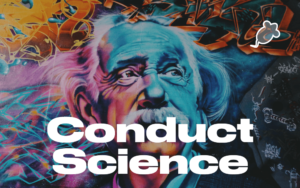
Neuroscience and Artificial Intelligence – Timestamps 00:00 – Hello, welcome and introduction to Mitch 01:18 – Introduction to neuroscience 07:00 – EMDR therapy and mental

What is Time? – Timestamps 00:00 – Intro 00:48 – Factoids 05:08 – The history of time 08:23 – Defining time 13:12 – Do only
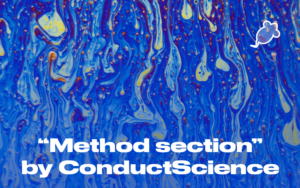
The Method Section – Science You Can Get Involved with Now! – Timestamps 00:00 – Intro 00:27 – What is the Method Section? 01:43 –
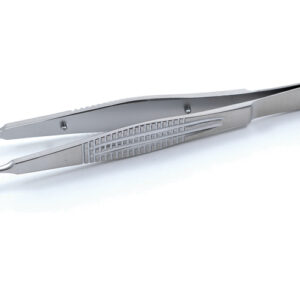
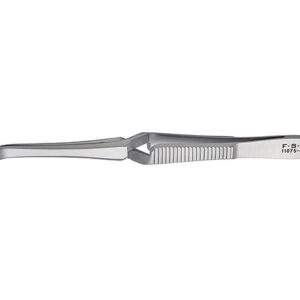
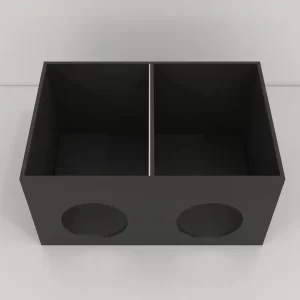
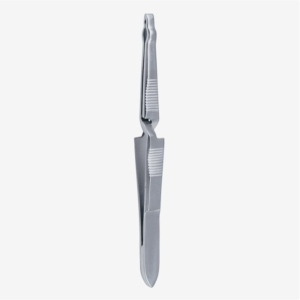
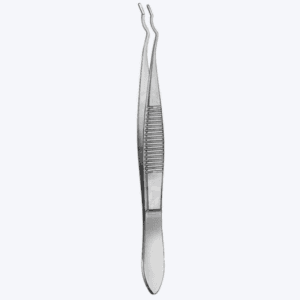
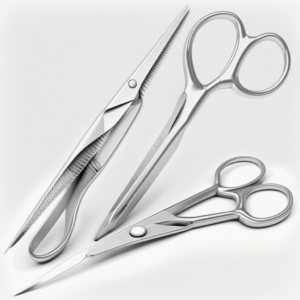
DISCLAIMER: ConductScience and affiliate products are NOT designed for human consumption, testing, or clinical utilization. They are designed for pre-clinical utilization only. Customers purchasing apparatus for the purposes of scientific research or veterinary care affirm adherence to applicable regulatory bodies for the country in which their research or care is conducted.